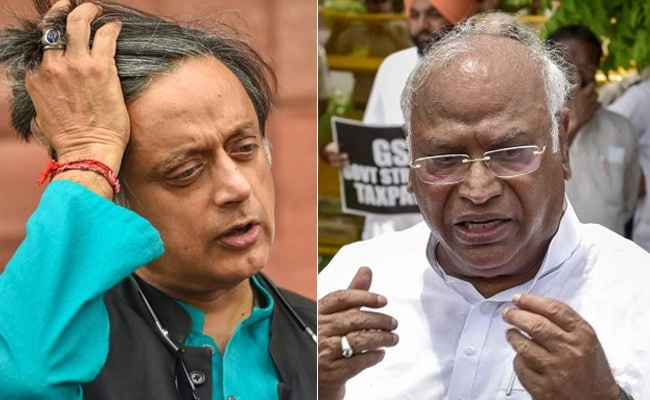In a recent statement, Congress President Mallikarjun Kharge expressed his views on the political landscape of India, particularly focusing on the contrasting priorities within the party and the broader political arena. Kharge emphasized that for the Congress party, the nation comes first, underscoring a commitment to prioritizing the interests and welfare of the country above all else. This sentiment reflects a foundational principle of the Congress party, which has historically positioned itself as a champion of secularism, social justice, and inclusive development. Kharge’s remarks serve not only to reaffirm the party’s dedication to national interests but also to highlight a growing concern regarding the rise of personality-centric politics.
In his comments, Kharge specifically referenced Shashi Tharoor, a prominent Congress leader known for his articulate discourse and intellectual contributions. The juxtaposition of “Country First” against “Modi First” suggests a critique of the current political leadership under Prime Minister Narendra Modi, where Kharge perceives a tendency to prioritize individual leadership over collective national interests. This assertion resonates with a significant segment of the population that views Modi’s governance as increasingly personalized, potentially sidelining broader democratic values and processes.
Kharge’s insistence on placing the country above any single leader or party reflects a growing call among various political factions for a return to collaborative governance and policy-making that genuinely addresses the needs of the citizens. This dialogue is crucial in a time when political polarization is rampant, and many citizens are yearning for a political discourse that fosters unity rather than division. By emphasizing the importance of collective national priorities, Kharge seeks to position the Congress party as a viable alternative to the current regime, one that is rooted in the principles of democracy and inclusivity.
Ultimately, Kharge’s remarks serve as a reminder of the responsibilities that political leaders bear to their constituents. The call for a “Country First” approach is not merely a slogan but a foundational ethos that advocates for governance that is accountable, transparent, and ultimately beneficial to all citizens. As political dynamics continue to evolve in India, the discourse around leadership and national priorities will play a pivotal role in shaping the future of the country’s democratic framework.




